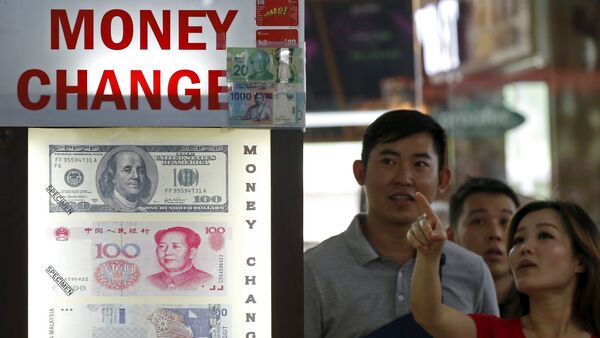DALIAN (Sputnik) — In mid-August, China's central bank for several days lowered the reference rate of the yuan against the dollar, decreasing by almost 5 percent in a move that sparked some to panic.
"We have already improved the potential position of the yuan against the dollar… We will keep the yuan stable and adaptive, to the agreed level," Premier Li Keqiang said at an annual Meeting of the New Champions.
Devaluation of a national currency is a common method employed by governments to improve export price competitiveness. Overt government manipulation of exchange rates can turn into currency wars when other governments respond in kind.
"We all live in one world. Faced with the overall objective of the global economic recovery, the international community should work together, increasing the depth of coordination… China will never lead a currency war," the prime minister pledged.
"We are more interested in the industrial cooperation than in the competition. We need to work together to develop industrial cooperation," Li Keqiang noted.
The devaluation of the yuan triggered a decline in commodity prices worldwide, and subsequent losses to the currencies of commodity-export-dependent countries.



